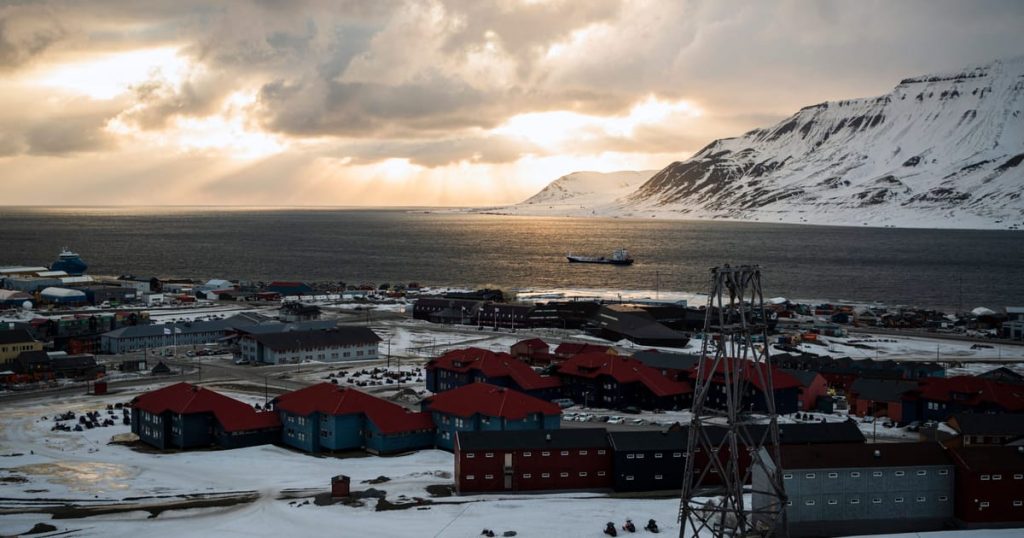The Arctic region, rich in natural resources and strategically significant, is becoming an increasingly contested geopolitical space. Mike Waltz, a prominent figure in US national security circles, articulated this growing concern, highlighting Russia’s ambitions in the region. He emphasized the interconnectedness of Arctic resources – oil, gas, and critical minerals – with national security interests, framing the Arctic as a vital domain for future competition and potential conflict. This heightened awareness stems from Russia’s assertive posture in the region, reminiscent of historical imperialist tendencies, which raises concerns among other Arctic nations.
Norway, with its Svalbard archipelago located deep within the Arctic Circle, finds itself at the forefront of this evolving geopolitical landscape. Svalbard’s strategic position along a crucial sea route used by Russia’s Northern Fleet to access the Atlantic Ocean adds a layer of complexity to its status. While the Norwegian Prime Minister has affirmed Svalbard’s security and its integral place within Norway, the archipelago’s unique history and legal framework contribute to its delicate geopolitical balance. The presence of Russian settlements on Svalbard, a legacy of the Soviet era, underscores the interwoven history and ongoing interactions between the two nations in this remote region.
The Svalbard Treaty of 1920, a cornerstone of the archipelago’s governance, grants Norway sovereignty while simultaneously allowing other signatory nations to exploit its natural resources. This unusual arrangement creates a complex interplay of national interests within a demilitarized and visa-free zone. While the treaty aims to foster peaceful cooperation and scientific research, the potential for resource competition and strategic maneuvering remains. Russia’s continued exploitation of Svalbard’s resources, alongside Norway, highlights the enduring relevance of the treaty and its role in shaping the region’s dynamics.
The ghost town of Pyramiden, a relic of Soviet-era coal mining, serves as a poignant reminder of the past and a symbol of the complexities of Svalbard’s history. The imposing statue of Lenin, still standing in the town’s central square, evokes the ideological struggles of the 20th century and the enduring legacies of the Cold War. The juxtaposition of this abandoned settlement with the vibrant, albeit small, community of present-day Svalbard encapsulates the archipelago’s unique character as a place where history and the present intersect. The ongoing presence of a Russian population in Barentsburg, the second-largest town on Svalbard, further underscores the interwoven relationship between Norway and Russia in this remote corner of the world.
The convergence of these factors – resource competition, strategic significance, and historical legacies – transforms Svalbard into a microcosm of the larger Arctic geopolitical game. The archipelago’s demilitarized status, intended to promote peace and cooperation, exists alongside the potential for underlying tensions and strategic calculations. The presence of researchers and tourists, drawn to Svalbard’s pristine environment and unique wildlife, further complicates the equation. Balancing the interests of scientific exploration, resource extraction, and national security within this fragile ecosystem presents a significant challenge for Norway and the international community.
As the Arctic ice continues to melt due to climate change, opening up new shipping routes and access to resources, the strategic importance of the region will only intensify. This increasing accessibility will likely exacerbate existing tensions and potentially create new flashpoints for conflict. The complex interplay of national interests, historical claims, and the presence of valuable resources creates a volatile mix in a region undergoing rapid transformation. Svalbard, with its unique treaty arrangements and its position at the crossroads of these competing forces, serves as a critical case study for understanding the evolving dynamics of the Arctic and the challenges ahead. The future of Svalbard, and indeed the entire Arctic region, hinges on the ability of nations to navigate these complex issues and find a path towards peaceful cooperation and sustainable development.














